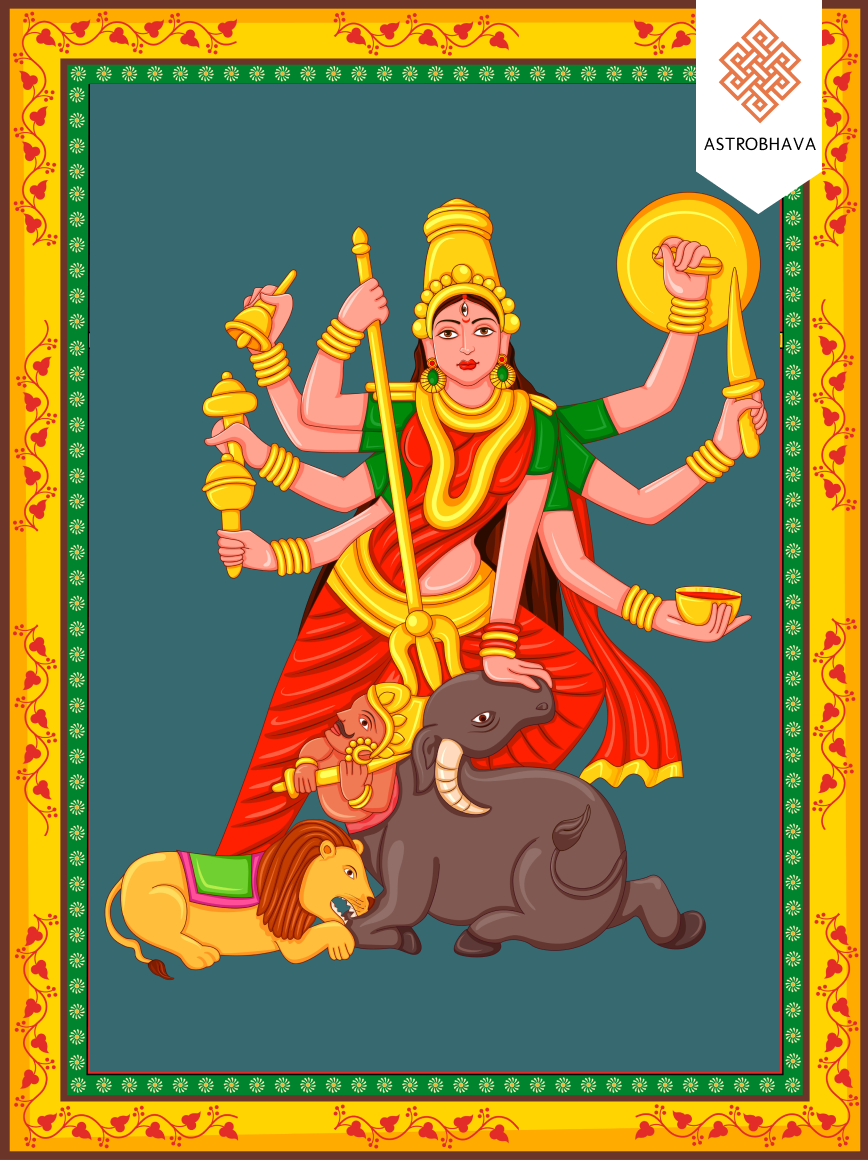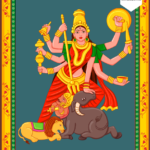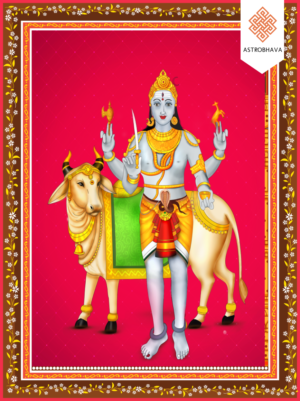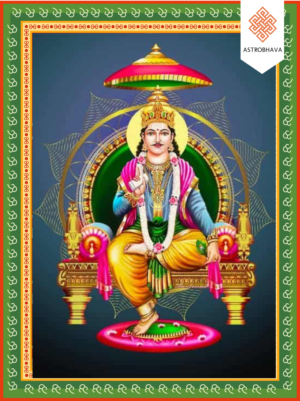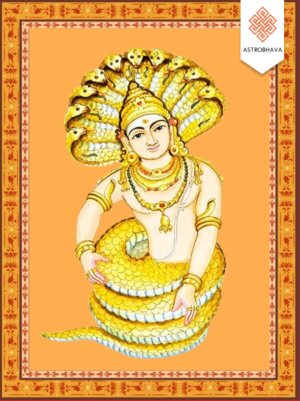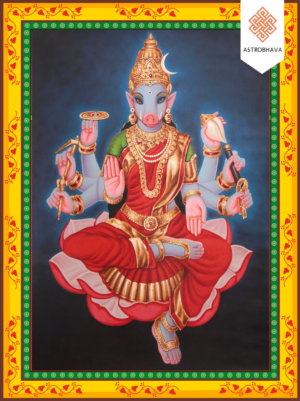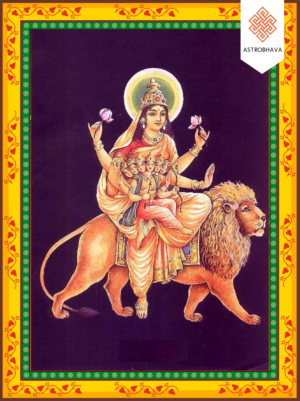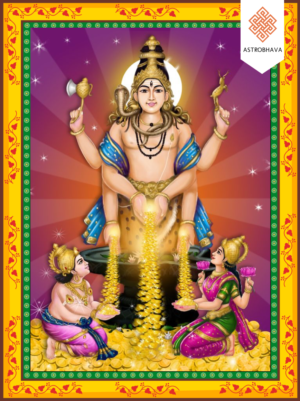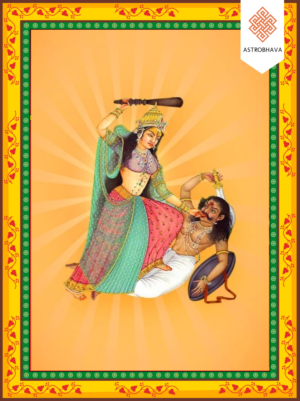Goddess Durga, a prominent deity in Hinduism, embodies several unique traits that underscore her significance and power. Revered as the epitome of divine feminine strength and protection, Goddess Durga possesses qualities that distinguish her from other deities. Her unique traits make her a central figure in various spiritual practices and rituals, emphasizing her role as a guardian, warrior, and nurturer.
1. Divine Warrior and Protector
One of Goddess Durga’s most prominent traits is her role as a divine warrior. She is depicted with ten arms, each holding a different weapon, symbolizing her readiness to combat evil forces and protect her devotees. This portrayal emphasizes her capability to fight against all forms of negativity and injustice, making her a powerful protector against adversities and malevolent forces.
2. Embodiment of Shakti (Divine Energy)
Goddess Durga is the embodiment of Shakti, the divine feminine energy that permeates the universe. She represents the dynamic and creative force responsible for the creation, preservation, and destruction of the cosmos. This trait highlights her role as a driving force behind all life and existence, making her a symbol of empowerment and vitality.
3. Upholder of Dharma (Righteousness)
Durga is revered as a guardian of Dharma, the principle of cosmic order and righteousness. She ensures that moral and ethical values are upheld and that justice prevails. Her involvement in the battle against the demon Mahishasura signifies her commitment to restoring balance and righteousness, reinforcing her role as a defender of virtue.
4. Motherly Nurturer and Protector
Despite her fierce appearance, Goddess Durga is also known for her nurturing and compassionate nature. She is often referred to as “Maa Durga,” reflecting her motherly qualities. Her compassion and care extend to all her devotees, providing them with love, support, and guidance in times of need.
5. Manifestation of Multiple Forms
Goddess Durga manifests in various forms and avatars, each representing different aspects of her divine power. These manifestations include Kali, Lakshmi, and Saraswati, among others. Each form serves a specific purpose and embodies unique qualities, showcasing her versatility and the depth of her divine presence.
6. Conqueror of Demons and Negative Forces
Durga is celebrated for her victory over demons and negative forces that threaten the cosmic order. Her battle with Mahishasura, a demon with the ability to change forms, is a central narrative that highlights her strength and determination. This victory symbolizes the triumph of good over evil and her role as a fierce defender of righteousness.
7. Symbol of Fearlessness and Strength
Goddess Durga is synonymous with fearlessness and strength. Her ability to confront and vanquish formidable foes demonstrates her unparalleled courage and fortitude. This trait inspires devotees to overcome their fears and challenges, drawing strength from her divine example.
8. Patroness of Arts and Sciences
In addition to her role as a warrior and protector, Durga is also associated with the patronage of arts and sciences. Her multifaceted nature encompasses not only spiritual and martial aspects but also intellectual and creative domains. This association underscores her holistic influence on various aspects of life.
9. Guardian of the Universe
As a guardian of the universe, Goddess Durga plays a crucial role in maintaining cosmic balance and harmony. Her presence ensures that the forces of chaos are kept in check, allowing the natural order to prevail. This trait highlights her importance in the cosmic scheme and her role in sustaining universal equilibrium.
10. Source of Divine Blessings and Grace
Goddess Durga is known for bestowing divine blessings and grace upon her devotees. Her compassion and generosity manifest in the form of blessings that bring prosperity, health, and well-being. Devotees seek her blessings for guidance, protection, and the fulfillment of their desires.
11. Embodiment of Courage and Resilience
Durga embodies courage and resilience, qualities that are essential for overcoming life’s obstacles. Her unwavering resolve and determination in the face of challenges serve as a source of inspiration for devotees. Her example encourages individuals to face their struggles with bravery and persistence.
12. Divine Feminine Power
Goddess Durga represents the divine feminine power, which is revered as the source of all creation and sustenance. Her role emphasizes the importance of recognizing and honoring the feminine aspects of divinity, which are integral to the balance and harmony of the universe.
13. Champion of Justice and Fairness
Durga’s commitment to justice and fairness is a defining trait. Her battles against evil forces are not merely physical confrontations but also symbolic of her fight for justice and equity. This trait reinforces her role as a champion of moral principles and fairness.
14. Spiritual Guide and Mentor
As a spiritual guide, Goddess Durga offers wisdom and insights to her devotees. Her teachings and guidance help individuals navigate their spiritual journeys, fostering personal growth and enlightenment. Her role as a mentor underscores her importance in spiritual development and self-realization.
15. Protector of the Innocent and Vulnerable
Goddess Durga is especially protective of the innocent and vulnerable. Her divine presence safeguards those who are helpless and in need of protection. This aspect of her character highlights her compassionate nature and her commitment to defending those who cannot defend themselves.
16. Source of Empowerment and Strength
Durga’s divine energy empowers her devotees, granting them the strength and resilience needed to face life’s challenges. Her blessings provide the confidence and fortitude required to overcome obstacles and achieve personal goals. This trait emphasizes her role as a source of empowerment and inner strength.
17. Keeper of Sacred Traditions
Goddess Durga is a custodian of sacred traditions and rituals. Her worship and the associated practices uphold the spiritual heritage and cultural values of Hinduism. This role reinforces her significance in preserving and perpetuating sacred customs.
18. Symbol of Eternal Victory
Durga’s victories over evil forces symbolize the eternal triumph of good over evil. Her battles and conquests are not limited to historical or mythical contexts but are seen as ongoing representations of divine victory. This symbolism underscores her enduring power and relevance.
19. Manifestation of Cosmic Energy
Goddess Durga embodies the cosmic energy that drives the universe. Her divine presence represents the dynamic force that sustains and governs all creation. This manifestation highlights her integral role in the cosmic order and her influence on the natural and spiritual realms.
20. Beacon of Hope and Inspiration
Finally, Goddess Durga serves as a beacon of hope and inspiration for her devotees. Her life and actions provide a source of motivation and encouragement, helping individuals find purpose and direction. Her example inspires people to strive for righteousness and achieve their highest potential.
In summary, Goddess Durga is a multifaceted deity whose unique traits encompass strength, protection, compassion, and empowerment. Her divine qualities make her a central figure in Hindu worship and spiritual practice, offering guidance, blessings, and inspiration to countless devotees.

